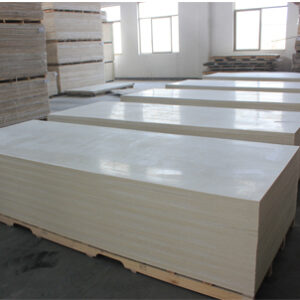 Yes, some types of Magnesium Oxide (MgO) boards can “sweat” or leach fluid in humid conditions due to a process similar to deliquescence.
Yes, some types of Magnesium Oxide (MgO) boards can “sweat” or leach fluid in humid conditions due to a process similar to deliquescence.
This phenomenon, often called “crying” or “sweating” boards, is a serious concern primarily associated with MgO boards that use magnesium chloride as a binding agent, which forms magnesium oxychloride cement (MOC).
The Mechanism of Leaching/Sweating
The “sweating” is a direct result of the chemical composition of certain boards:
- Magnesium Chloride is Highly Hygroscopic: Magnesium chloride is a hygroscopic salt, meaning it readily absorbs and retains moisture from the air. The chemical composition of MOC cement is prone to this moisture absorption.
- Deliquescence: In environments with high relative humidity (RH), typically above 80-84% RH (the “weeping point” for some boards), the magnesium salts absorb so much atmospheric moisture that they dissolve in it, forming a concentrated salty water solution (leachate) that leaks out onto the board’s surface.
- Corrosive Fluid: This leachate contains a high concentration of chloride ions, which makes the fluid extremely corrosive to adjacent materials, leading to the rapid rusting of metal fasteners, anchors, and structural elements like steel and aluminum.7 It can also cause moisture damage and mold growth in contacting timber elements.
Chloride-Free Alternatives
Due to the significant moisture-related issues and corrosion damage (famously seen in Denmark), manufacturers developed alternative formulations to mitigate this problem.
- Magnesium Sulfate Boards (MOS): Boards that use magnesium sulfate instead of magnesium chloride as a binder are generally much less hygroscopic and exhibit superior moisture resistance.
- Chloride-Free Boards: These alternative formulations are specifically designed to not absorb excessive moisture or leach corrosive chloride-containing fluid, thus preventing the “sweating” and related corrosion issues, even in high humidity environments.
In summary, the risk of “sweating” or deliquescence in an MgO board is directly dependent on its chemical formulation—specifically, the presence of magnesium chloride
OCT
2025
